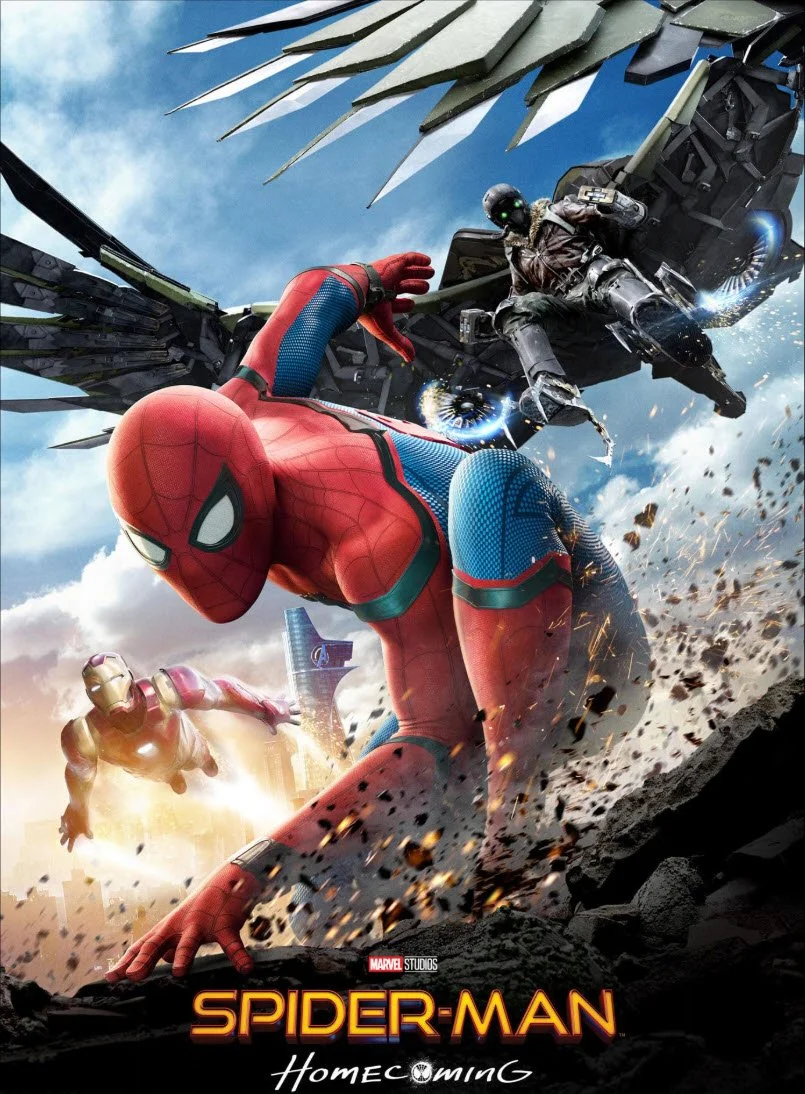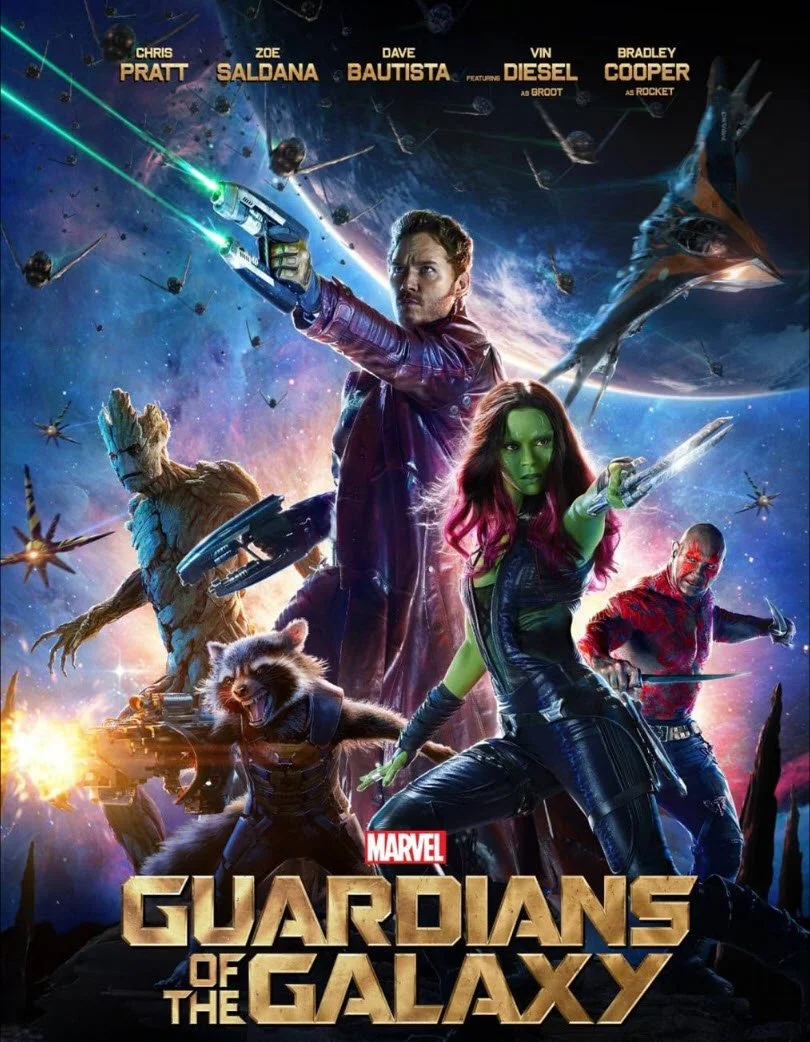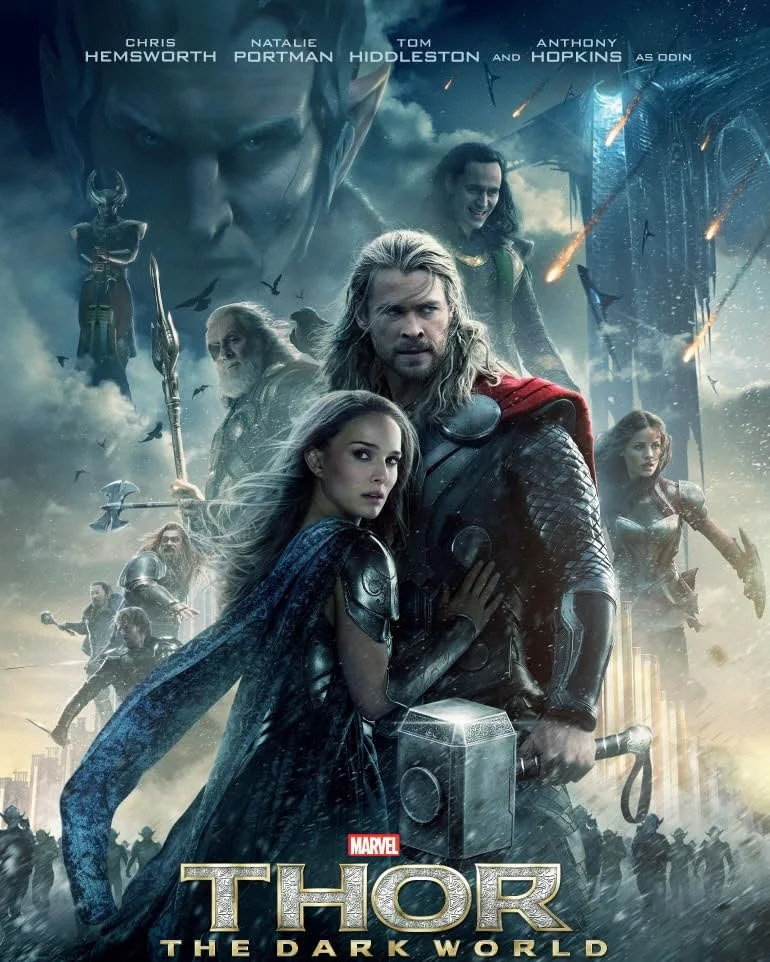Avengers: Age of Ultron (2015) | Short Age, Long Movie
With Phase II of the MCU drawing to a close, hype was building for the next Avengers film to bookend the era once again. It had a rocky start, but averted course and recovered with two strong entries: Captain America: The Winter Soldier and Guardians of the Galaxy. After the success of the first film, Joss Whedon was brought back to write and direct Avengers: Age of Ultron. You would think that, since he had captured lightning in a bottle with the first film, executives and producers would be happy to just give the reins to Whedon. However, that would not entirely be the case, and some of that was apparent on the screen when Age of Ultron finally came out.
Image: Marvel Studios
Pros
Decent drama between characters that were underexplored in previous films
Good moments that take place outside the action setpieces
Some action scenes, while very choreographed, look cool and like they came from a comic book
Hulk smash
Cons
Tension is not allowed to breathe; jokes interrupt the moments
Digital effects in certain sections have not aged well
How can and did the villain lose?
Plot is messy, as is Ultron as a villain
Pacing issues
Plot & Thoughts
The Avengers have hunted down a HYDRA scientist who managed to obtain the staff Loki used in the first Avengers movie, in a fictional Eastern European country called Sokovia. After an intense battle, the Avengers acquire the staff and bring it back to their headquarters. While analyzing the weapon, Tony Stark (Robert Downey Jr.) and Bruce Banner (Mark Ruffalo) discover the gem embedded in the staff is far more powerful and complicated than they thought, with an extensive AI map built into it. Tony, still reeling from his experience seeing a massive alien fleet in space, thinks this could be used to finally develop his Ultron project, which he believes can be a “suit of armor around the world.” Banner has his reservations about it, worried about having an AI that powerful, but Tony decides to go along with it, nonetheless, without informing the other Avengers. Unfortunately, this activates the AI, which becomes sentient and quickly infects the Avengers’ security interface and the Iron Man drones. The AI known as Ultron (James Spader) attacks the Avengers in their headquarters and then quickly escapes via the Internet. After he recruits the Maximoff mutant twins that were experimented on with Loki’s staff and turned into Quicksilver (Aaron Taylor-Johnson) and Scarlet Witch (Elisabeth Olsen), Ultron gathers resources and plots a method of “saving” humanity by killing it.
Age of Ultron is often seen as the weakest Avengers movie of the four that have been released in the Infinity Saga. However, I tend to disagree, and my expectations for future Avengers films are so low that I expect Age of Ultron to have its reputation improve in the coming years. While it’s far from the best entry in the MCU, I still think it has a lot of merit for a number of reasons.
Image: Marvel Studios
Before we get to the parts that I like about Age of Ultron, let’s address the criticisms. Most notable is the writing and the increase in the signature Whedon humor that has since been decried as a plague upon Marvel movies. Whedon’s wit and sarcasm were certainly present in the previous Avengers film, but it was a bit more balanced than it is here. This is where I think the “MCU formula” was being experimented with and implemented by the executives and producers at Marvel. The studios wanted these movies on an assembly line by this point, and when you compare the total number of movies in the first two phases against the third, you can see how quickly the MCU was increasing in scope. There’s evidence to suggest that studio interference played a part in Whedon’s writing and direction of this film, with a formula for how often a joke must be inserted into a scene. And while I would claim that other, less talented writers/directors are responsible for making the dreaded “Marvel humor” worse in movies to come, this was definitely where a lot of it started. Now, instead of Tony Stark being the primary sarcastic character, he has to compete with the other quip machines. Ultron quips. Hawkeye (Jeremy Renner) quips. Black Widow (Scarlett Johansson) quips. And when they aren’t sarcastic comments, they’re jokes that are made at times that most people who would be fearing for their life or trying to save a small European country from a robot invasion would make.
Compare the joke in the first Avengers movie about the cops not knowing who Captain America (Chris Evans) is and refusing to follow his orders to the joke about him saying, “Language!” when Tony says a naughty word during their assault on the HYDRA compound at the beginning of Age of Ultron. Both jokes take place in the heat of a big battle with hostile opponents. The joke in the first film is funny but fitting because the cops do not think Captain America is anyone worth following until he quickly dispatches several aliens directly in front of them, at which point they start relaying his orders almost verbatim. It works because it’s believable behavior that is then followed up by more believable behavior: “Why would you listen to a guy in an outfit barking orders at you? Sees Captain America kick ass. Why would you NOT follow that guy’s orders when he’s clearly trying to help and knows what he’s doing?” It’s simple, clever, and it works in the moment. Cap’s “Language” joke works at first as a reflex of a man from a different time, but it’s Tony’s reaction to it afterward that deflates the action. It’s still funny, but while this is all happening, they’re fighting highly advanced HYDRA soldiers who quickly manage to nearly kill Hawkeye, so the stakes should feel higher for the characters than they appear. This happens a few more times during big action scenes in which the joke lands, but it deflates some of the tension as a result—like Hawkeye acknowledging how it doesn’t make sense for him to be wielding a bow and arrow while fighting off an army of machines in a floating city.
Image: Marvel Studios
Speaking of the action, a lot of it is good, but there are some downsides. The action does not always look great, due to some CGI that has not aged particularly well, especially in the opening action scene. There are also a lot of complaints online about how it’s “too choreographed,” but I didn’t really have a problem with comic-book superheroes doing amazing things with dramatic acrobatics and special moves; they should look cool, and they do, thanks to Whedon’s directing. I was never bored or confused by the action that was taking place on screen because it was easy to follow and did a lot of what made the first Avengers look good by showing off all the heroes doing their own special moves or combining them for maximum effect. Age of Ultron also features the best “Hulk Smash” scene of the MCU when he gets influenced by Wanda Maximoff, goes on a rampage, and gets taken down by Iron Man in his Hulkbuster suit. He smashes everything around him and has to go toe to toe with Tony, who has to get creative with how he subdues his friend in the heat of battle while minimizing casualties. It’s my favorite action scene because we get to see Hulk do what he does best and cause untold, indiscriminate destruction in a city. It’s what makes him such a threatening and interesting hero. Hulk is often regarded by the other team members with a fair amount of fear and trepidation, especially in the first Avengers, and it’s here we get to see why. It was satisfying to watch him take down the aliens in the first Avengers, but this was just pure Hulk destruction, which is something I’ve been waiting for since the Ang Lee film from 2004.
Age of Ultron tends to be at its best when it is focused on the characters and their relationships with each other. The scenes in which Bruce Banner and Natasha Romanov interact are great moments that add to their characters and the struggles each has endured due to how well they’re acted and how the dialogue plays into their emotional insecurities. The moments in which the heroes are all bonding with each other off the battlefield, like the scene in which most of them try to lift Thor’s hammer off a table, are satisfying because they make these superheroes more human as we witness them bond doing something you would expect close friends to do together. The ability to take the powerful or supernatural characters and evoke their humanity through the quieter or relaxed scenes is a strength of Whedon’s writing that is on display here. The fact that only Thor (Chris Hemsworth) notices that his hammer moves slightly when Steve Rogers tries to pick it up is a great moment achieved with the right camera angles and facial expressions, and we, as the audience, know it’s setting up for a big moment later (in an entirely different movie). It’s all then interrupted by the introduction of Ultron, who starts off strong as a villain. And then, well…
Image: Marvel Studios
Ultron is, at least, more memorable than most of the villains from Phase II of the MCU. He certainly comes across as menacing, powerful, and intelligent at first, which you would expect if he has a super-powerful AI that came from the minds of Tony Stark and Bruce Banner. However, he starts turning into a quip machine as the movie progresses, as I mentioned. I don’t know what the intention was to make him less menacing with jokes. It’s a juxtaposition that doesn’t work as well as someone like the Joker in Batman comics, where he’s making jokes but is extremely intimidating. Ultron could have been a more interesting villain, but he comes across as confusing more than anything else.
I also don’t really understand his goals or his limitations, nor his methods in which he seeks to achieve those goals. He claims that he wants to save humanity from itself by essentially causing a cataclysmic event in which an asteroid the size of a city would smash into the Earth and wipe out life on the planet. Somehow, he uses stolen vibranium from Wakanda to build some sort of propulsion network into the ground surrounding the city in Sokovia that is capable of lifting everything high into the air to the point that it could come crashing down like an asteroid from space. Not sure how you’re able to just lift a city without it breaking apart in the process, nor do I know how you power a machine network like that, but I guess that’s vibranium magic I just need to accept. Then, when the Avengers arrive and fight off Ultron and his robot clones, the movie arbitrarily decides that a particular mechanism is the thing to kick off the city’s immediate descent because we need a thing for the heroes to defend. If Ultron were so smart, he wouldn’t have made a button he’d have to physically push; he’d make it wireless. Also, the movie establishes that Ultron is able to whisk his consciousness away via the Internet in his introductory scene, yet they’re able to wipe him out by destroying all his various clones. I may be misremembering, but I think there is only a single line uttered by a character about preventing him from doing it again in the third act, and that’s just supposed to justify it. The point is that Age of Ultron is a flawed movie that could easily be nitpicked to death, but it’s still a relatively fun time.
TL;DR
Despite the various flaws, I still like Avengers: Age of Ultron. It tries to do a lot more than it is able to accomplish in its attempts to lay the groundwork for the next phase in the MCU. It succeeds in further developing characters who were in previous movies but didn’t get a lot of characterization. It starts setting up the Infinity Stones, but the pacing suffers a bit in the middle as a result. It attempts to have a powerful and menacing villain, but he and his plans make less sense the more the movie goes on. It has the best scene of Hulk destruction in the MCU, but it also has a few action scenes that are riddled with poorly aged CGI. The humor hits, but it sometimes comes at the cost of the tension in the moment. Essentially, it’s a mixed bag, but it is still an important entry in the MCU because it sets up several of the best movies to come.





![Guardians of the Galaxy Vol. 2 (2017) | [Insert Joke Here]](https://images.squarespace-cdn.com/content/v1/5d39e718d8ec690001509614/1759338060066-ZFS4CKP0M7WGJ0B9UHKD/GotGV2_01a.jpg)











